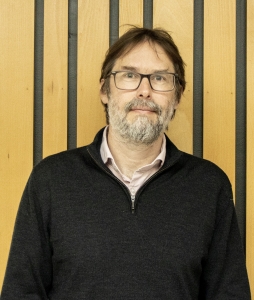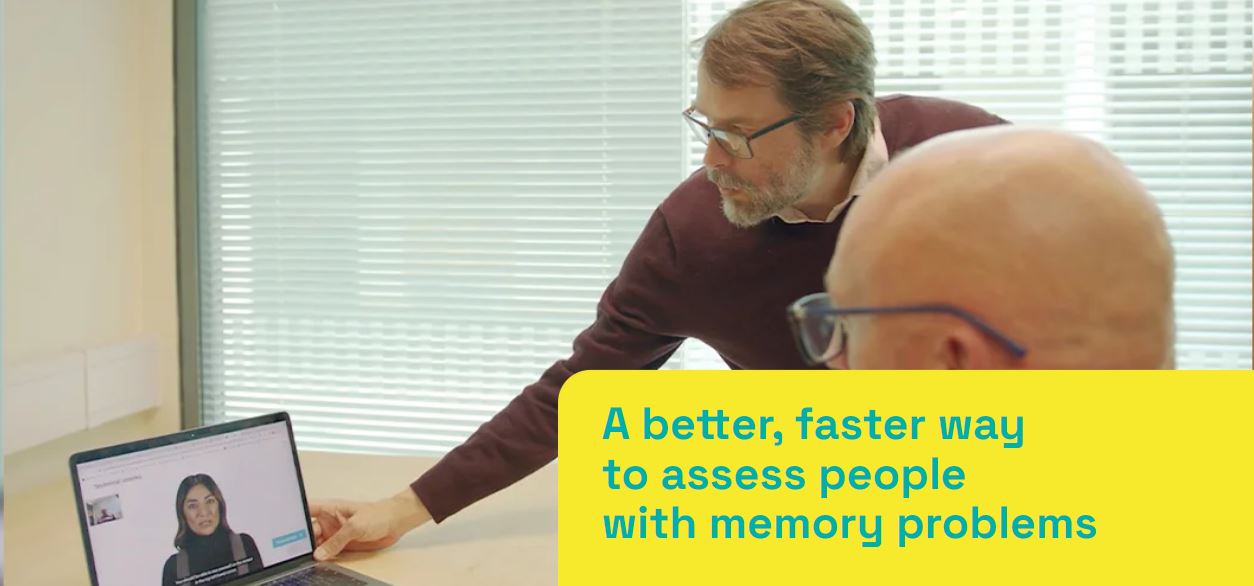An Interview with Dr. Daniel Blackburn
Dr. Daniel Blackburn is Co-Lead for our Long-Term Neurological Care theme. Dan found an interest in research after spending three years within the department of academic neurology between 2005-2008, studying about the role of glial cells in Motor Neuron Disease. Specific interest around cognition within neurology has led to Dan’s work on projects such as the co-development of CognoSpeakTM, a screening tool which utilises speech technology and machine learning to identify distinct patterns of speech that help to differentiate between healthy volunteers, neurodegenerative memory problems and functional memory problems.
“Can you give me a bit of background about your medical career?”
I completed two years as a senior house officer (including 6 months in Belgium at Cliniques Universitaire de Mont-Godinne, where all patient contact was in French). I also spent 6 months at King’s College London practicing Neurology and spent 3 months as a SHO in Psychiatry working in general adult and old age psychiatry placements. I worked as a registrar in neurology from the end of 2002 until March 2013 in hospitals within England and Singapore. In these positions, neurology accepted all acute neurological problems including acute strokes, where I gained experience in delivering thrombolysis for acute stroke.
I undertook my PhD in Sheffield from 2005-2008 and stayed to complete my neurology training. In 2013, I began a post as a Consultant Neurologist with specialist interest in dementia, helping to develop dementia services with Sheffield Teaching Hospitals. I took up an academic position as Senior Lecturer at the University of Sheffield in 2018 alongside developing and setting-up an Occupational therapy led follow-up clinic in the memory clinic. This has increased capacity to follow-up patients in the future and allows three consultant neurologists to see more new referrals, reducing waiting times for patients.
I am a member of the Dementia Implementation Group, which is a collaboration consisting of council, NHS, Social care and voluntary organisations, investigating ways to prevent dementia alongside managing the needs of all people with dementia in Sheffield. As well as providing a high quality and timely diagnostic service I am interested in improving post-diagnostic support and work with the FTD carers group and the Young Onset Dementia Charity as well as Alzheimer Society. I have also been a Primary Investigator (PI) on dementia research trials such as the phase 1 anti-tau Anti-sense oligonucleotide intrathecal study which has been recently published in Nature Medicine (Tau-targeting antisense oligonucleotide MAPTRx in mild Alzheimer’s disease: a phase 1b, randomized, placebo-controlled trial | Nature Medicine).
“What projects are you currently involved in?”
The majority of projects that I am currently engaged in, relate to non-invasive diagnostic aids for dementia.
Automated Speech Analysis in people with cognitive complaints. This project is co-lead by Heidi Christensen, Professor of Computer Science at the University of Sheffield (UoS). I was a co-applicant on an NIHR Research for Patient Benefit (RfPB) Programme: ‘Using Conversation Analysis in the Differential Diagnosis of Memory Problems’ and oversaw the recruitment of over 100 patients. We have developed a fully automated system called CognoSpeakTM. We are collaborating with Therapy Box (commercial partner in London), York Health Economic Consortium, UoS Commercializing team (Sue Smith) and with Old Age Psychiatry and primary care. We have collected >300 recordings and developing its use for Stroke survivors, people with Parkinson’s disease and Motor Neuron Disease. Further information about this project can be found here.
Developing EEG as a diagnostic tool for dementia. I am PI on an ARUK funded project (collaboration between neurophysiology, engineering, neuropsychology) to use novel EEG data analyses method to distinguish people with Alzheimer’s Disease from healthy age-matched volunteers. We have recruited over 100 participants. The Bi-centroparietal synchronisation in eyes open state and ratio with eyes closed state can distinguish people with Alzheimer’s Disease from healthy controls especially in the under 70 age group. Collaborating with neurophysiologist and engineers (Mahnaz Avanah, Yifan Yhao (Cranfield University), Fei He (Coventry University).
Astrocytes in Neurodegeneration. I spent 3 years within the department of academic neurology studying the role of glial cells in Motor Neuron disease. I presented my data at the 17th International ALS/MND meeting and published 2 research papers and 1 review article. I am currently collaborating on projects to investigate the role of astrocytes in sporadic AD. We are taking skin biopsies from our patients with AD and converting them into i-astrocytes and i-neurons to create an in-vitro model of sporadic disease.
Driving behaviour as a marker of Cognitive function. Collaboration with the commercial partner; The Floow. We are remotely monitoring drivers with Mild Cognitive Impairment and healthy older adults to investigate aspects of safety to drive and effects of cognitive function ion driving.





